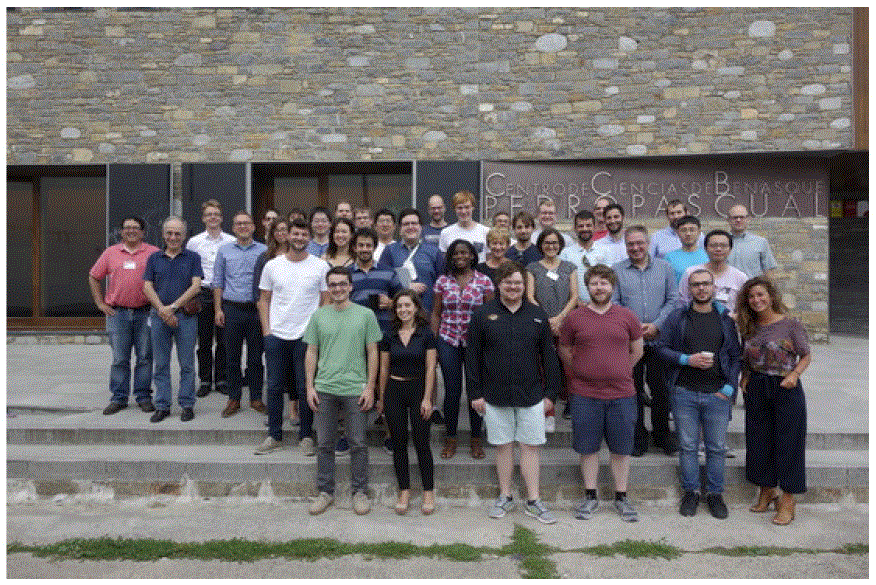August 20th-31st, 2018
Benasque Center for Science “Pedro Pascual”, Benasque, Spain
http://www.benasque.org/2018tddft/
Organizers: Angel Rubio, Eberhard K. U. Gross, Miguel A. L. Marques, Neepa Maitra, Alberto Castro
There are many alternative schemes to approach the time-dependent, out-of-equilibrium, many-electron problem. Time-dependent density-functional theory (TDDFT) has a significant “market share” due to the same reasons that make conventional ground state density-functional theory (DFT) a successful scheme: the fairly good predictive power at a moderate computational cost. As a consequence, its use has quickly grown, and its reliability for many purposes has been sanctioned by many applications and benchmarks over the years. As the computational resources increase, however, various alternatives such as advanced post-Hartree Fock multi-configuration schemes or many-body perturbation theory techniques can be applied to larger systems, and may provide more precise results. Newer and more intriguing possibilities, such as the direct solution of the many-electron Schrödinger equation with quantum computers, and the use of machine learning techniques for the prediction of many properties, appear also in the horizon. It is therefore necessary to review the capabilities and perspectives of TDDFT. This is the main goal of the Workshop, and of the School that we organized immediately before the Workshop.
This School+Workshop event is in fact a new iteration of a series dedicated to TDDFT, that started in 2004. It takes place every two years, a periodicity that we feel that is adequate to follow the advances in the topic. However, it always takes place in Europe, and there was a strong demand for a similar event taking place in the US, due to the difficulties in the travel, specially for students and young researchers. Fortunately, the demand was met in the last year by a similar event (a school on TDDFT followed by a workshop on first principles approaches to the electronic excited states problem) that took place in Telluride, Colorado. Part of the organizers of this event were also present in Benasque, and the goal is to periodically repeat the US event, also every two years if possible. It should be noted, also, that a similar event is being planned in Asia (Tsukuba, Japan), by Prof. K. Yabana.
You can read the full workshop report here.


